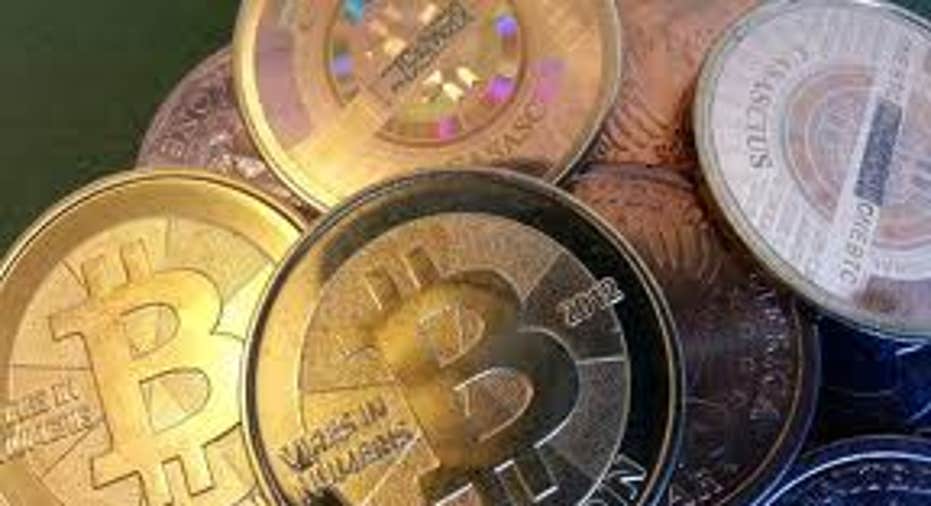The Consumer Risk of Bitcoins

Turns out, not even fake financial systems are deemed safe.
State and federal regulators have launched investigations into virtual currencies like Bitcoin in an attempt to curb any consumer threats and abuses from the decentralized digital currency .
The Senate’s Committee for Homeland Security sent a letter to Secretary Janet Napolitano on Monday urging a probe into the oversight of the flourishing digital-based currency market.
Bitcoin was created in 2009 as an open-source software code, but has grown into a $1 billion industry.
As digital currency continues to gain traction, lawmakers are seeking more clarity on policies and who would regulate the market. But some proponents of the currency say too much government involvement could hinder growth and expansion.
Andre DeCastro, founder of eCoin Cashier, a site that lets users sell their Bitcoins from their mobile devices, was subpoenaed by New York under its latest Bitcoin investigation. DeCastro says the current regulations in the U.S. are too broad for Bitcoin to make the leap into consumers’ everyday rotation.
“Presently, regulations have been rather broad, so that all Bitcoin-related companies are in a catchall net… and in the U.S., the regulations are very difficult for startup companies that are the ones promoting virtual currencies,” he says.
The U.S. once had dominance when it came to using the e-currency, but has recently been surpassed by China, Berlin, and most recently Argentina, where Bitcoin usage has grown by nearly 300%, says DeCastro. At press time, the exchange rate for mtgox Bitcoin in USD is around $114.
“Our dominance is starting to lag because of the imposition of regulations,” he says.
But Jonathan Mohan, founder of Bitcoin NYC, a community meetup for the currency’s merchants and professionals, says more regulation and knowledge of the currency and its shortcomings is necessary to make it more mainstream.
The biggest risk to average users in dealing with Bitcoin is actually losing it, he says, adding that a colleague recently lost $180,000 in Bitcoin after not securing it properly.
“Bitcoin is just a file on a computer, and if someone gains access to it, it can easily be stolen with sophisticated users,” Mohan says. “The paranoia of it being stolen to such a great extent is how they lose access to it.”
Taking Safety Precautions
Mohan suggests cold storage or taking the public key that consumers have to access Bitcoin and writing the full code down on a piece of paper and storing it with a bank or in a safe deposit box. Once the paper is secure, owners should then completely wipe the code off the computer.
“There is a public key that lets people deposit, and a private key, or string of letters and numbers that lets you withdraw—it can be stored in any form, as a computer file, a handwritten note or QR code,” he says.
Experts also caution against being viewed as Bitcoin business operators, but instead as an individual using the currency.
“If you and I transact in Bitcoin, and I am acting as a business rather than a user, these [new] regulations would apply to me. If you are seen as a money transmitter and you aren’t registered, then you are violating and committing a crime,” says Mohan.
Transactions between Bitcoin users are also not easily monitored, according to Ari Zoldan, CEO of Quantum Networks.
“A lot of times people can use it as a place for illicit trading—consumers need to be aware of falling into that area,” he says.
Bitcoin is also considered monetary value, and is technically taxable, Zoldan warns. “Many times people don’t think they have to report it—that is wrong and you don’t want to bump into issues with the IRS.”
Finally, value can fluctuate wildly, Zoldan says. Because the currency is not mainstream, there isn’t enough money behind it to create tight standards to protect consumers. You can purchase the currency for a certain amount and have it split in half by the next day, he says.
Many of the risks associated with Bitcoin simply cannot yet be mitigated, which is why Mohan argues the currency isn’t yet ready for primetime.
“The greatest inhibitor to its success is that there are so many unknown risks—there are too many unknowns in the space,” he says. “As it relates to consumers, it’s not ready for that level of integration into financial life. We need there to be enough people [using it] to make it easy and safe for consumers. Which is why we are seeing so much interest from regulators.”



















